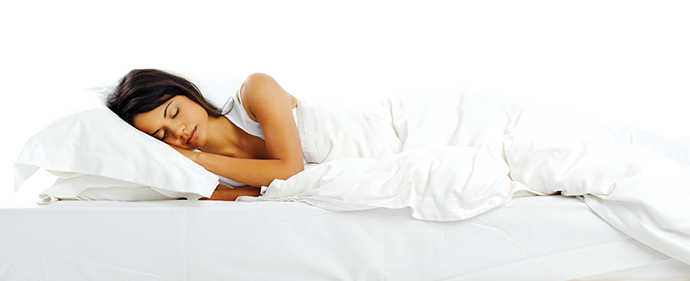- Magazine
- #readityourway
- Weekly Stories
- #shareyourstory
-
Adventure
- Abroad Travelling
- Africa Travelling
- Events
- Expos & Shows
- Festivals
- Fishing
- Free Diving
- Gliding
- Horse Riding
- Inspiring People
- Islands Travelling
- Kite/Windsurfing
- Motorbiking
- Motorised Water Sports
- Mountaineering
- Mountain Biking
- Off-road 4x4
- Off-road Motorbiking
- Paddling
- Performance Driving
- Photography
- Rock Climbing
- Rollerblading
- Sailing
- Scuba Diving
- Skateboarding
- Skydiving
- Snowboarding & Skiing
- Surfing
- Swimming
- Trail Running
- Wakeboarding
- Waveski Surfing
-
Sport
- Adventure Racing
- Fishing
- Free Diving
- Gliding
- Health & Fitness
- Horse Riding
- Inspiring People
- Kite/Windsurfing
- MMA
- Motorbiking
- Mountain Biking
- Multi-sport
- Off-road 4x4
- Off-road Motorbiking
- Paddling
- Performance Driving
- Photography
- Road Cycling
- Road Running
- Rock Climbing
- Rollerblading
- Sailing
- Scuba Diving
- Skateboarding
- Skydiving
- Snowboarding & Skiing
- Surfing
- Swimming
- Rugby
- Trail Running
- Triathlon
- Wakeboarding
- Waveski Surfing
- Lifestyle
- Calendar
Sleep to improve your performance
Words: Andrea Kellerman, Educational Psychologist
Topic:
Health & Fitness
We spend a third of our lives in sleep mode and generally need between seven to nine hours sleep per night to be able to function properly the next day. Athletes, however, need more due to the consistent stress and high-intensity training sessions they endure every day. To improve their speed, accuracy and reaction time, and depending on the sport, athletes need to sleep between eight and ten hours sleep per night, as well as take regular naps that shouldn't be longer than 25-30 minutes, and are besthalf way through the day.

There is no doubt that sleep fulfills a physiological need, but what do we get out of this process and why is it so important for improved performance? Well, sleep rewires our brains and, as I mentioned in my last article, we learn when we are asleep. New connections are built during sleep and the brain refines connections and discards unused ones. Physical and mental activity allows the production of new brain cells in the memory areas of our brain, and these cells are connected and reinforced whilst sleeping. This enhances our performance and mood.
Enhanced physical performance
Sleep has been found to help us work through the emotions and situations we experience each and every day. This is achieved through dreaming, which allows us to 'experience' different possible outcomes and choose the best one for a certain situation. Many studies have also shown that if you sleep or nap after learning a skill in real life or with a simulator, or even playing a computer game like Tetris, people have shown up to a 30% improvement in that particular skill. Therefore, you will have a better rate of improvement in performance if you sleep after learning or practicing a skill than longer or more regular practice sessions without those sleep breaks. What this all means is that we create physical memory whilst sleeping. So if you thought that sleeping was a waste of time, think again as these studies just go to show the true value of taking 40 winks. But the benefits don't stop there.
Other benefits
Apart from physical memory, we also enhance our cognitive (mental process) memory during our sleep. Different studies have proved that people are able to remember more when learning batches of new words if followed by sleep, rather than just learning the word chunks again and again. The people who were allowed to sleep in the studies remembered the learnt chunks with 50% more accuracy than those that learnt through repetition alone. Sleeping on newly-learnt skills seemed to cement them into the subject's mind.
Sleep is also important to enhance your immune system, improve your mood, lower the risk of heart disease, enhance weight loss, and improve reflexes, concentration, focus and mental and physical performance.

Insufficient sleep
If we don't get enough sleep, we may not feel it the next day, but we are depriving our bodies of the proper repair cycle. This will lead to a decrease in our performance because the body is not able to store glycogen, the energy reserve system of the body, properly. Researchers have discovered that sleep deprivation can have a big impact on our basic metabolism and not getting enough sleep slows glucose metabolism by as much as 30-40%. Furthermore, the brain increases the production of our cortisol (stress hormone) levels, which inhibits healing and reduces memory retention and your overall performance. So make sure you take regular naps and get a good night's sleep - every night.
Improve your sleep cycle
Here are some tips to help you enhance your sleep routine.
1. Get into a routine. Try to go to bed at the same time, sleep the same number of hours and get up at the same time every day.
2. When travelling, try to acclimatise first by getting to the event earlier, so that you can get into your normal sleeping routine.
3. Avoid sleep medication (unless it has been prescribed by your doctor) as over-the-counter sleep medication can decrease your sleep quality and make you feel drowsy. It can also lower your mood and decrease your energy.
4. Reduce alcohol and caffeine intake as this can disturb your sleep cycles. Caffeine is a stimulant and can keep you from falling asleep. Alcohol is a depressant, which can make you feel down and low in energy, and acts like an 'uncontrolled' sleep medication.
5. Sleep in a cool room that is dark and as sound proof as possible.
6. Try to avoid cardio exercise after 6 p.m. as this can stress your body and enhance the production of cortisol and adrenalin, which doesn't allow your brain to switch off and keeps it in a fight-flight mode.
7. Switch your electronic devices, such as laptops and cell phones, off an hour before you go to sleep, to allow your brain to get into the rest mode without any interruptions.
8. When watching TV or reading a book, choose happy stories rather than violent crime stories. During our first sleep phases, our brain works through the last thing we saw and heard before falling asleep. Choose something positive rather than negative, to encourage a more restful and pleasant sleep.
So if you want to get the edge over your competition, then make sure you get enough sleep.
dinFO:
If you struggle to sleep and need help to train your brain to function optimally, visit Andrea Kellerman’s website www.eq-advantedge.co.za and learn more about the different programmes.
Issue:
Issue 26 Jun '13











